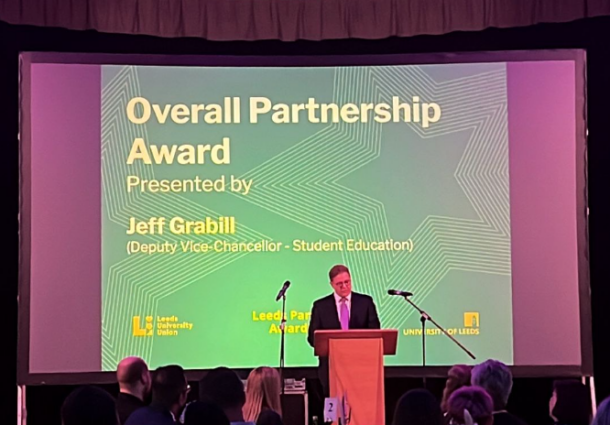Partnership Awards: Nominations made simple

Nominations made simple
It’s really easy to nominate someone for a Partnership Award. We get thousands of nominations every year, demonstrating just how many wonderful people are making a difference in our university community – but the super simple process helps play a part in making up these numbers.
If there’s someone you’d like to celebrate but you’re unsure of the process, this page will take you through everything you need to know about making a Partnership Awards nomination. The deadline for nominations is Monday 26 February 2024.
How to nominate someone
The first step is browsing the award categories, which you can find on the main page. We recommend reading through all the categories if you have the time, but the category names make it easy to identify which one best suits the person or group you’d like to nominate.
Once you’ve decided which category to nominate someone for, head over to the nomination form, which is available on the same page.
In the form, you can expect to provide details including your name and email address (but you can choose to remain anonymous if you prefer), your nominee’s name and email address, and the type of role the nominee is in (e.g. staff or student). There’s then a box to write your nomination.
Nominating someone for a Partnership Award is the perfect way to show your appreciation for someone who’s had an impact on your time at Leeds, and we can’t wait to read all the fantastic stories of the Leeds Partnership in practice.
If you’d like to make a nomination, please do so before Monday 26 February 2024.
What to include in your nomination
The nomination should be 50-200 words, and should explain how your nominee meets the award criteria, what the scale of their work has been, and what the impact on staff or students has been. Most of all, give us examples of what your nominee has done! This helps the judging panels to put your kind words into context and see the real-life outcomes of their work.
We’ve included some examples of previous ones below, which give an indication of the way you might want to approach your nomination. It doesn’t need to be long, formal or complex – it simply needs to make the case for why your nominee is so great.
You might want to draft the nomination in advance in Word, Google Docs or a similar programme, to enable you to keep count of the words and check you’re happy with how it reads.
Any questions? Contact the Academic Representation Team at uniasup@leeds.ac.uk.
Example 1
Equality and Inclusion Award:
“I am nominating Women Breaking Barriers because I believe that as a student-led group they have been going to extraordinary lengths this year to make their events as inclusive and engaging as possible. They invited speakers that talked about social mobility in academia and the legal sector and inspired a lot of students from BAME and working-class backgrounds like me. Over 300 students have attended their events. Also, as part of their committee I felt very accepted and embraced for my individuality and enjoyed working in a very culturally and ethnically diverse group. I was previously very anxious about my legal career but thanks to their support I have been able to network and find a mentor to help me progress outside of the classroom.”
Example 2
Global Award:
“I want to nominate Franks for all the hard work he has done creating and working with students on the International Student Advisory Board, a student-led forum giving a voice to all International students at the University. He has been reaching out to us outside of meetings in order to make sure we are okay and loving our time at Leeds. He has helped me learn about the processes and governance at LUU and without him I wouldn’t have started to advocate for myself and others.”
Example 3
Feedback Award:
“Nick has a unique style of teaching and engaging with students, is always mindful of the student’s learning experience and how he can be more effective in helping them understand, and is always readily available to chat/advise. The reason I am nominating Nick for this award is because he has done the utmost to provide in-depth feedback for my 18th Century Literature module in a voice-recorded format, which feels more personal and is easier to follow and build upon. It’s clear that he takes pride in his role as a lecturer and puts great emphasis on the university being a space of learning and enrichment.”




